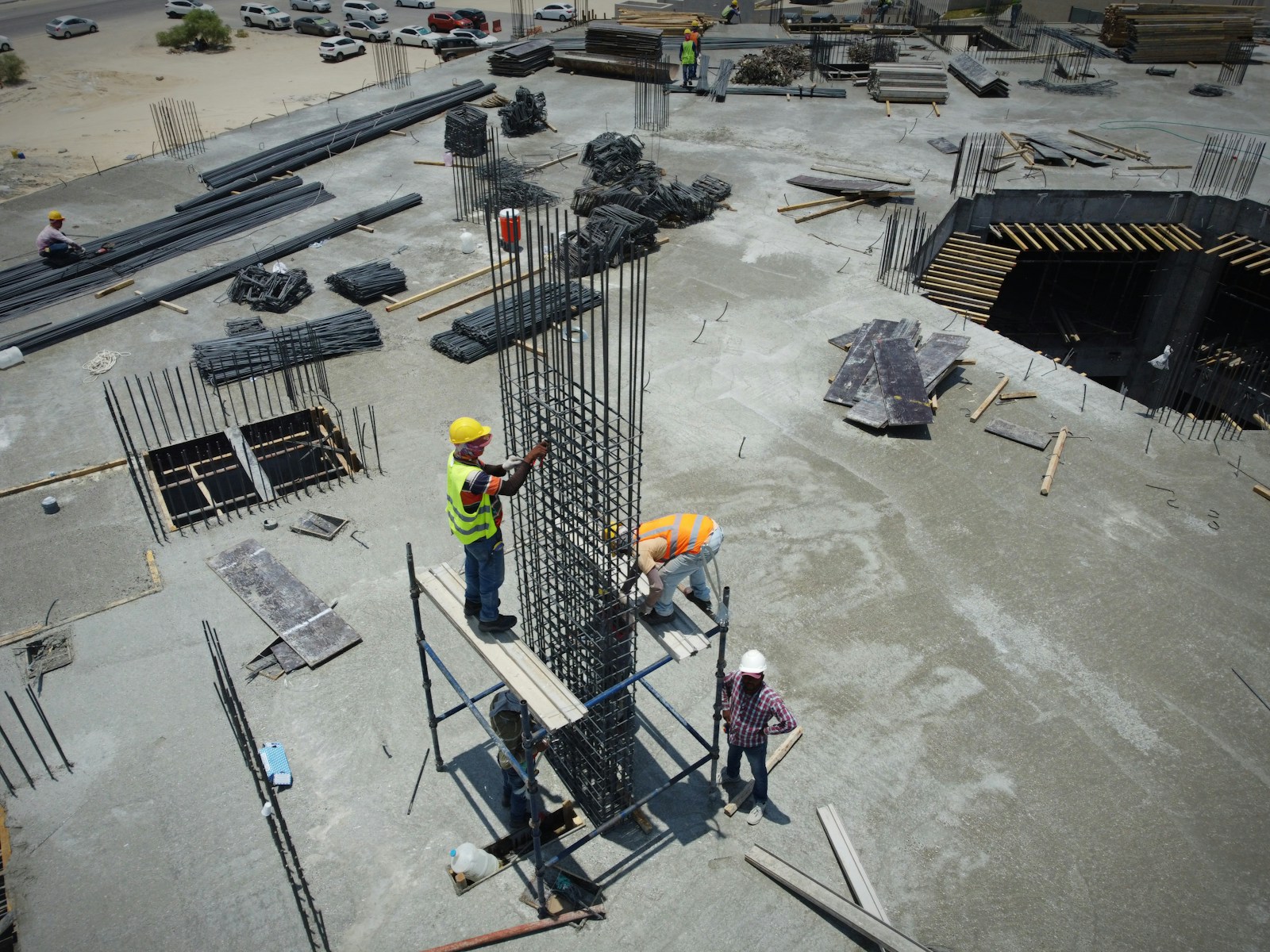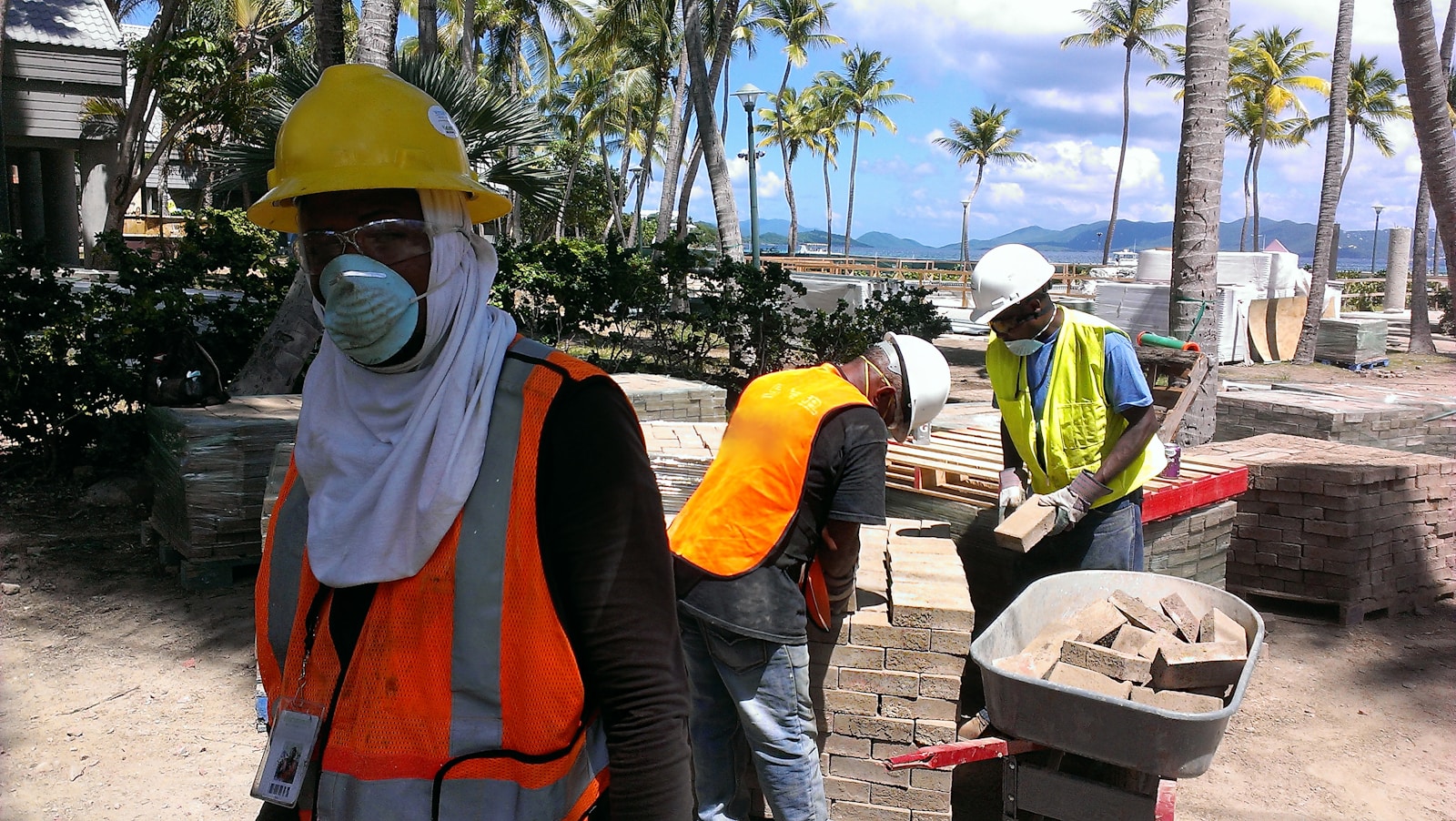A Construction Worker being a core attribute of the construction industry is responsible for erector of the physical structures that define our society. These workers involve themselves with several activities on construction sites/ worksites such as processing of materials and structures, and providing project safety and efficiency in operations. Construction workers are needed in the construction industry that involves residential and commercial activity, road construction, and civil engineering.
It is an exhaustive role that demands a high level of detail, as well as prompt interaction in a quick-moving process. Those who perform construction work work together with contractors, engineers, and other personnel in order to complete construction works in the right quality and standard.
Resume Description for This Job
When writing a resume for a construction worker position, highlight your experience with tools, equipment, and construction techniques. Emphasize your safety record, teamwork skills, and ability to complete projects on time.
Sample Resume Description:
“Hardworking Construction Worker with 5+ years of experience in residential and commercial construction projects. Skilled in operating heavy machinery, using hand and power tools, and interpreting blueprints. Proven ability to complete tasks efficiently while adhering to safety protocols and project deadlines. Dedicated team player with a strong work ethic and commitment to quality craftsmanship.”
Key Skills to Highlight:
- Expertise in construction tools and equipment.
- Knowledge of construction safety regulations.
- Ability to read and interpret blueprints and technical drawings.
- Physical strength and stamina for demanding tasks.
- Strong teamwork and communication skills.
Feel free to adjust details to better match your experience!
Salary (Based Range in USA)
The salary of a construction worker in the United States varies depending on experience, location, and type of construction work.
- Entry-Level Salary: $30,000 – $40,000 per year.
- Mid-Level Salary: $40,000 – $55,000 per year.
- Experienced Workers: $55,000 – $70,000+ per year.
Construction workers in metropolitan areas or on specialized projects (e.g., high-rise buildings, infrastructure projects) may earn higher wages. Additionally, obtaining certifications such as OSHA Safety Training or specialized skills like crane operation can lead to increased earning potential.
Responsibilities

Construction workers handle a wide range of tasks that contribute to the successful completion of construction projects.
Core Responsibilities:
- Site Preparation: Clear debris, prepare materials, and set up equipment at construction sites.
- Construction Tasks: Build frameworks, install drywall, pour concrete, and assemble structures.
- Machinery Operation: Operate equipment like bulldozers, cranes, and forklifts as needed.
- Safety Compliance: Follow safety regulations and wear appropriate protective gear.
- Material Handling: Load, unload, and transport construction materials and tools.
- Team Collaboration: Work closely with contractors, architects, and team members to complete tasks efficiently.
Additional Responsibilities:
- Repair and maintain construction tools and equipment.
- Assist in plumbing, electrical, or carpentry work as needed.
- Ensure proper storage and disposal of hazardous materials.
- Communicate progress and potential issues to supervisors.
Qualifications
While formal education is not always required, construction workers must possess specific skills and training to excel in this field.
Educational Requirements:
- High school diploma or equivalent (preferred but not always required).
Certifications (Optional but Beneficial):
- OSHA Safety Training certification.
- First Aid and CPR certification.
- Forklift or heavy machinery operation license.
- Specialized trade certifications (e.g., welding, carpentry).
Key Skills and Attributes:
- Physical Strength: Ability to lift heavy materials and endure long hours of physical work.
- Technical Skills: Proficiency in using hand and power tools.
- Problem-Solving Abilities: Address unexpected challenges effectively on-site.
- Attention to Detail: Ensure accurate measurements and precise work.
- Teamwork: Collaborate with colleagues and supervisors to meet project goals.
FAQs
Q1: What does a construction worker do daily?
A construction worker daily performs such work activities as preparation of construction materials, operating construction equipment, construction of structures and enforcing safety measures on construction sites.
Q2: Spare a thought for certs; do construction workers really need them?
By having certifications it is not mandatory but rather beneficial to the individual in pushing their career forward. The courses that are important include the ones given to oil, safety and health administration, also known as OSHA training, first aid, and specialized trade certifications.
Q3: Which companies or industries use construction workers?
Construction workers work in domestic, commercial, civil and industrial building sectors.
Q4: Is construction work strenuous?
Yes, it does entail lifting of some things, using of tools, and exposure to different climatic conditions which necessitate pulling of stuns and power.
Q5: Is career mobility possible for construction workers?
Absolutely. Through this, construction workers can get promotions and be able to work as a foreman, site supervisor or even as a project manager.
Conclusion
Employees in construction are of most importance as they oversee construction projects so that they can be completed safely within the required time framework. This position will suit a person who prefers a highly active, physical type of work and who seeks to obtain practical results. In essence, the construction industry provides a plethora of opportunity where one has to work with machines, structures, teams, or even climb a career ladder. If you are motivated, skilled, and ready to learn ,construction isn’t a bad field to be in.
